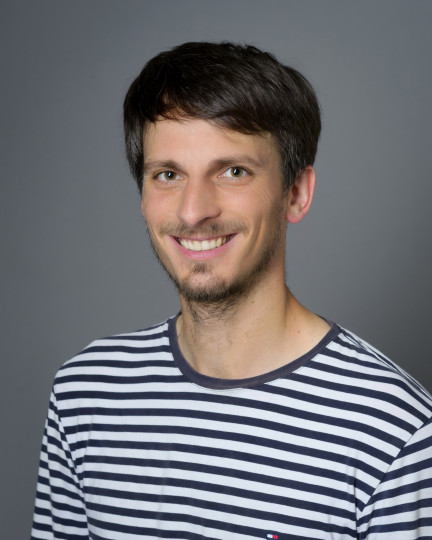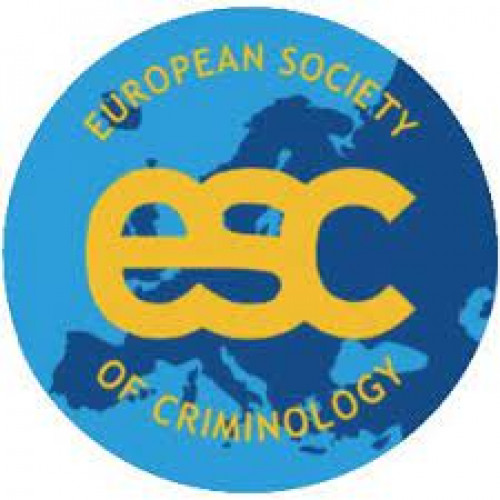ESC AWARDS 2024
The 2024 ESC Early Career Award was awarded to Gian Maria Campedelli and the jury who assessed his work considered that “for an early career scholar who is so close to his PhD submission, Dr Campedelli’s track record is extremely impressive and his empirical and conceptual contribution to criminology notable. The jury is thus convinced of Dr Campedelli’s out- standing scientific achievement and is unanimous in its decision to grant him the Early Career Award.”

Gian Maria Campedelli is a research scientist in the Mobile and Social Computing Lab at Fondazione Bruno Kessler, in Trento, Italy. In 2020, he obtained a PhD in Criminology from the Catholic University of Milan, and in 2018 he was a visiting research scholar at the School of Computer Science at Carnegie Mellon University. He worked as a junior researcher at Transcrime (2016-2019), and was a postdoctoral researcher in computational sociology within the Department of Sociology and Social Research at the University of Trento (2020 - 2023). He has collaborated with researchers and scientists explor- ing intellectual crossovers between criminology, eco- nomics, artificial intelligence, and statistics and his work focuses on the development and application of compu- tational and statistical methods for analysing complex criminal phenomena. He has worked and published on
a range of topics, including homicides and serial killers, mafias, Mexican cartels, and terrorism.
The ESC European Journal of Criminology Best 2023 Article Award went to Florian Kaiser, Björn Huss, and Marcus Schaerff for their paper titled “Differential updating and morality: Is the way offenders learn from police detection associated with their personal morals?”, published in the issue 20/3 (pp 1061-1080) of the European Journal of Criminology (EJC). The jury felt this paper is “an excellent representation of theory-guided, empirically robust, original research being conducted in the European context and contributing to European criminology, with important theoretical and practical implications for the field beyond the European context”.

Florian Kaiser completed a Bachelor’s degree in sociology at the University of Bremen (2009 - 2012) and then a Mas- ter’s degree in sociology with a focus on sociological meth- ods at the University of Bielefeld (2012 – 2015). In 2022 he received his doctorate from Bielefeld University with a thesis on the effects of formal control on adolescent delin- quency. Since 2022, he has been working as a postdoc in the Independent Research Group “Space, Contexts, and Crime” at the Max Planck Institute for the Study of Crime, Security and Law in Freiburg. His current research interests focus on the explanation of (criminal) behaviour and the psychosocial consequences of social stressors (e.g., formal control reactions or criminal victimisation), with a particular emphasis on considering how these processes are shaped by social contexts (e.g., neighbourhood conditions).

Björn Huss is a sociologist and political scientist. He works as a senior researcher in the research area Educational Careers and Graduate Employment at the German Centre for Higher Education Research and Science Studies (DZHW). In 2021, he completed his PhD on the effects of fertility-related life events on subjective well-being at the Leibniz University of Hannover. Björn’s research focuses on the quantitative-empirical analysis of key events and transitions in the life course. He also studies the adequa- cy of academic employment and the effects of juvenile delinquency and victimisation on the life course.

Marcus Schaerff studied law at the University of Münster (1996 – 2002) and then completed his post-graduate judicial service training at the Higher Regional Court of Hamm (2003 – 2005). Afterwards, he worked as a research assistant at the Institute of Criminology of the University of Münster. He received his doctorate from the University of Münster in 2015 with a thesis on the treat- ment of young offenders in the United States from the colonial era to the present day. Since then, he has worked as a postdoctoral researcher at the University of Münster’s Institute of Criminology, where he is project coordinator for the study on the “Effects of juvenile criminal justice interventions in Germany and England”, as well as for the long-term study “Crime in the Modern City”. His current research interests focus on juvenile delinquency and juve- nile (criminal) law, corrections, sanctions and their effects, and social control with a particular emphasis on the possi- bilities of big data and machine learning in this context.
The 2024 ESC Book Award was offered to Evelyn Svin- gen in recognition of her book Evolutionary Criminology, published in 2023 by Palgrave Macmillan. The jury con- sidered that “Whilst there were several excellent books submitted this year”, Evolutionary Criminology, based on Evelyn Svingen’s PhD work, “represents a bold attempt
to understand the contribution that evolutionary theory might make to the study of crime” and that the book “is a strong example of how to contribute to the development of European criminological knowledge: building on strong theoretical arguments to formulate a theoretical frame- work of sorts, producing testable hypotheses which are then empirically tested out using a novel methodology, the collection of original data, to carefully interpreting the results, and being aware of the limitations.”

Evelyn Svingen is an Assistant Professor of Criminology at the University of Birmingham. She earned her PhD in Criminology from the University of Cambridge, where she was awarded the Cambridge International Scholarship. Her research focuses on evolutionary criminology and neurocriminology, particularly the relationships between retribution, reciprocity, and crime. Evelyn Svingen inte- grates concepts from behavioural economics, neu- roscience, and sociology to study criminal behaviour, developing the Retribution and Reciprocity Model (RRM) as a framework for understanding crime through cooperation and punishment. Her research method- ologies include the use of game theory experiments to investigate both prosocial and antisocial behaviours.
Congratulations to all the recipients!
